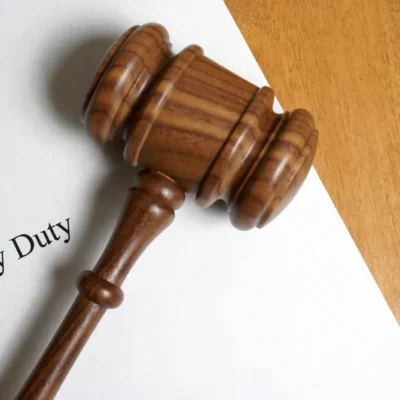There are many references to the Bible in English law. The principle of the “Good Samaritan” is one of the most famous. It refers to a parable told by Jesus in the Gospel of Luke (Luke 10:25-37). The parable recounts the story of a traveller who was robbed, beaten, and left half-dead on the side of the road. Several religious figures, including a priest and a Levite, passed by without offering any help or assistance. However, a Samaritan, who belonged to a despised ethnic group of that time, came upon the injured man. The Samaritan was moved with compassion, bandaged the man’s wounds, and took him to an inn, where he paid for his care and recovery.
The Samaritan’s actions demonstrated kindness, mercy, and selflessness. The parable of the Good Samaritan serves as a lesson about the importance of showing compassion and assistance to those in need, regardless of social or cultural differences. It encourages individuals to extend their care and concern beyond their immediate circles and to act with genuine empathy towards others.

In Australia, the Good Samaritan principle plays a role in promoting acts of compassion and protection within the community by protecting those who act from this motive.
This legal principle recognizes the importance of individuals stepping forward to assist those in need during emergencies or life-threatening situations. This article explores the concept of the Good Samaritan principle in law, its scope of application, and the protection it affords to those who provide voluntary aid in good faith.
The Good Samaritan Principle
The Good Samaritan principle in New South Wales is primarily governed by the Civil Liability Act 2002. Under this legislation, individuals who render assistance in emergencies are granted legal protection from civil liability, as long as they act reasonably and in good faith. This principle encourages people to act without hesitation, knowing that their actions will not result in undue legal consequences.
Section 56 Who is a good Samaritan? A good Samaritan is a person who, in good faith and without expectation of payment or other reward, comes to the assistance of a person who is apparently injured or at risk of being injured.
Scope of Application
The Good Samaritan principle applies to situations where immediate assistance is required to prevent injury or harm to others. It encompasses a wide range of scenarios, including providing first aid, administering CPR, rescuing individuals from dangerous situations, or alerting emergency services. The principle is not limited to medical emergencies but extends to any circumstances where immediate aid can help prevent further harm.
Protection and Immunity
Under the Civil Liability Act 2002, Good Samaritans are protected from civil liability unless their actions are deemed grossly negligent or reckless. This means that individuals who provide aid in good faith are generally immune from being sued for damages that may occur during the course of their assistance. This legal protection aims to encourage individuals to act promptly and selflessly in emergency situations.

While the Good Samaritan principle provides legal protection, it is essential for individuals to exercise reasonable care and skill when offering assistance. Good Samaritans should act within the limits of their training, expertise, and the resources available to them. It is advisable to obtain appropriate training, such as first aid certification, to ensure the best possible aid is provided. Additionally, cooperating with emergency services and following their instructions is crucial.
In Dekker v Medical Board of Australia [2014] WASCA 216, medical practitioner Leila Dekker, was involved in a “near miss” motor vehicle accident on the evening of 27 April 2002. While her car narrowly avoided damage, the other vehicle swerved into a ditch, causing injuries to its occupants. After the accident, Dekker promptly proceeded to a nearby police station to report the incident. Unfortunately, she left the scene without assessing the condition of the injured individuals or providing medical assistance.
Consequently, the Medical Board of Australia (WA) brought Dekker before the State Administrative Tribunal (Tribunal) on charges of improper conduct in a professional capacity. The Tribunal alleged that her actions violated section 13(1)(a) Medical Act 1894 (WA) by leaving the accident scene without stopping to assess or assist the occupants of the other vehicle.
However, the Court of Appeal later overturned the Tribunal’s decision, highlighting that the mental state of the doctor and other relevant factors were not adequately considered. The Court’s ruling emphasized the necessity of comprehensively evaluating the circumstances surrounding the incident.
Reporting Obligations and Professional Duty
It is important to note that the Good Samaritan principle does not absolve individuals of any legal reporting obligations. In certain circumstances, such as suspected child abuse or criminal activities, individuals may be required to report the incident to the relevant authorities. Moreover, professionals, such as healthcare providers, have additional legal obligations and standards of care to uphold, which may differ from those of a layperson.
Conclusion
The Good Samaritan principle in NSW law serves as a vital legal framework that encourages individuals to provide voluntary aid in emergency situations. By granting legal protection, the principle helps to promote a culture of compassion and community involvement. Understanding the scope and limitations of the Good Samaritan principle empowers individuals to make a positive impact and contribute to the well-being of others. Embracing this principle not only benefits individuals in need but also strengthens the social fabric of New South Wales, fostering a caring and supportive community for all.
Reference:
1. Oxford Reference – neighbour principle https://www.oxfordreference.com/display/10.1093/oi/authority.20110803100227619;
jsessionid=5F991AF56875B2ED310C7AD08993440A
2. Dekker v Medical Board of Australia [2014] WASCA 216
3. Civil Liability Act 2002 (NSW) s 56
4. ‘What does it mean to be a “good Samaritan”? https://www.jw.org/en/bible-teachings/questions/good-samaritan-meaning/
*Disclaimer: This is intended as general information only and not to be construed as legal advice. The above information is subject to changes over time. You should always seek professional advice before taking any course of action.*

















